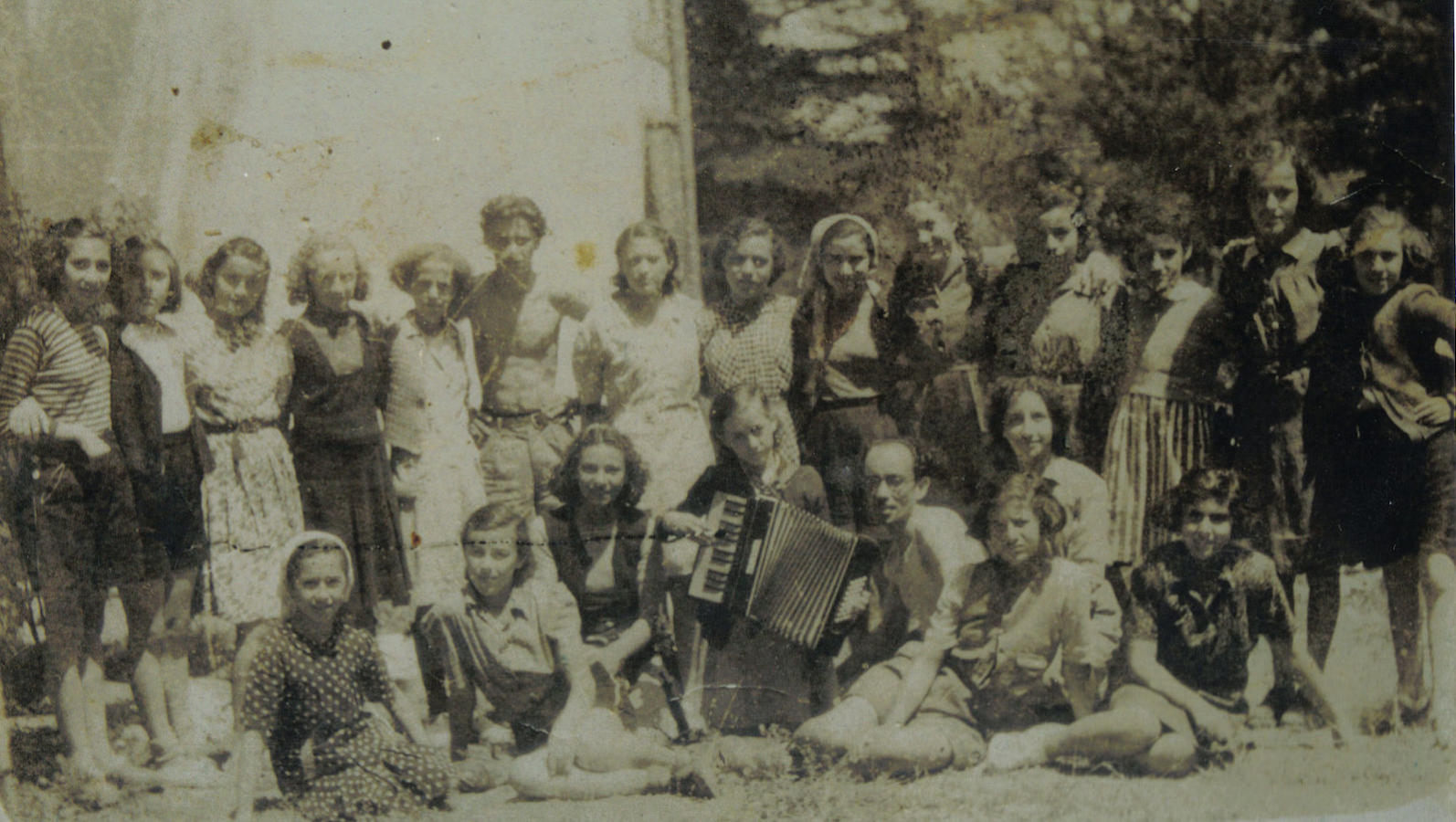Between 1919 and 1945, Bulgaria was one of several kingdoms located in southeastern Europe, an area often referred to as the Balkans. In 1934, Bulgaria had a population of more than six million people. In that year, Jews constituted 0.8 percent of the total population, or roughly 50,000 individuals.
In early March 1941, Bulgaria joined the Axis alliance and, in April 1941, participated in the German-led attack on Yugoslavia and Greece. In return, Bulgaria received German authorization to occupy most of Greek Thrace, Yugoslav Macedonia, and Pirot County in eastern Serbia. Though Bulgaria participated in the Balkan Campaign, the provisions of its adherence to the Axis alliance allowed it to opt out of participation in the war against the Soviet Union in June 1941.
Persecution of Jews in Bulgaria
Beginning in July 1940, Bulgarian authorities instituted anti-Jewish legislation that excluded Jews from public service, restricted their choice of places of residence, and restricted their participation in many occupations. The legislation also prohibited marriage between Jews and non-Jews.
During the war, German-allied Bulgaria did not deport Jews from the core provinces of Bulgaria. The Bulgarian authorities did, however, deport Jewish residents from Greek and Yugoslav territories that Bulgaria had occupied in 1941. In March 1943, Bulgarian police and military units rounded up all the Jews in Macedonia, Thrace, and Pirot. Bulgarian officials interned 7,000 Macedonian Jews in a transit camp in Skopje. In Greek Thrace, Bulgarian officials deported about 4,000 Jews to assembly points at Gorna Dzhumaya and Dupnitsa and then handed them over to the Germans. In all, Bulgaria deported over 11,000 Jews to German-held territory. By the end of March 1943, virtually all of them died in the Treblinka killing center in German-occupied Poland.

Help us keep Jewish knowledge accessible to millions of people around the world.
Your donation to My Jewish Learning fuels endless journeys of Jewish discovery. With your help, My Jewish Learning can continue to provide nonstop opportunities for learning, connection and growth.
In accordance with the Wannsee Conference, German diplomats requested the Bulgarian government in the spring of 1942 to release all Jews in Bulgarian-controlled territory into German custody. The Bulgarian government agreed and took the necessary administrative steps to implement deportations, including the establishment of a Commissariat for Jewish Affairs in the Bulgarian Ministry of the Interior. By winter 1943, the Bulgarian government had arranged with representatives of RSHA office IV b 4 (under command of Adolf Eichmann) to deport 20,000 Jews as a first stage. Targeted in these first deportations were the Jewish residents of Bulgarian-occupied Thrace, Macedonia and Pirot (about 13,000 Jews), and approximately 8,000 Jews from Sofia, the Bulgarian capital.
During the first half of March 1943, Bulgarian military and police authorities carried out the deportation of 13,341 Jews residing in the Bulgarian-occupied territories. Once the Jews were in German custody, German authorities transported them to Treblinka, where virtually all were killed in the gas chambers or shot.
Public Protests of Deportations
As news of the successful deportations and the imminent deportation of Jews from Sofia reached the capital, opposition politicians, Bulgarian intellectuals and members of the Bulgarian clergy raised the alarm and began to protest openly against deporting Jews from the core provinces of Bulgaria. Czar Boris was inclined to go forward with the deportations until Dimitur Pešev, the deputy speaker of the Parliament, a representative from Kustendil, and a prominent member of Boris’s own Government Ruling Party, personally intervened and persuaded the czar to delay the planned deportation. On March 19, 1943, Pešev introduced a resolution in the parliament critical of the deportations and demanding a halt to them. The majority in the Government Ruling Party, undoubtedly with Boris’s tacit approval, voted down Pešev’s resolution and forced his resignation in late March.
After Pešev’s resignation, Bulgarian officials resumed preparations to continue the deportations. The growing wave of public protest, which included an intervention from the Metropolitan of the Bulgarian Orthodox Church, eventually forced Boris to change his mind and cancel the deportations in May 1943.
Shortly thereafter, the Bulgarian government announced the expulsion of 20,000 Jews from Sofia to the provinces. (In 1934, the Jewish population of Sofia was about 25,000, 9 percent of the capital’s total population.) Police brutally suppressed popular protests staged by both Jews and non-Jews. Within about two weeks, Bulgarian authorities expelled almost 20,000 Jews, relocated them to the Bulgarian countryside and deployed males at forced labor in forced-labor camps. Bulgarian authorities also confiscated most of the property left behind by those deported.
The End of the War and After the War
Although allied with Nazi Germany, Bulgaria remained neutral in the German-Soviet war and maintained diplomatic relations with the Soviet Union until 1944. As Soviet forces approached in late summer 1944, however, the Soviet Union declared war on Bulgaria. In September, a military coup overthrew the Bulgarian government, a Regency, which had governed the country since King Boris’s sudden death on August 28, 1943, leaving his son Simeon, a 6-year-old, as heir. The military government sued for peace with the Soviet Union, and in October 1944, Bulgaria switched allegiances and declared war on Germany. After the war, Bulgaria, which fell under Communist rule in February 1945, retained the Dobruja region, which it had acquired from Romania in 1940, but had to withdraw from Macedonia, Thrace and Pirot, returning these provinces to Greek and Yugoslav authority.
In 1945, the Jewish population of Bulgaria was still about 50,000, its prewar level. By 1948, however, more than 35,000 Bulgarian Jews had immigrated to the British Mandate in Palestine, a part of which became the state of Israel in May 1948. Most of the rest had also emigrated from Bulgaria by 1950.
Excerpted with permission from the United States Holocaust Memorial Museum’s Holocaust Encyclopedia.



